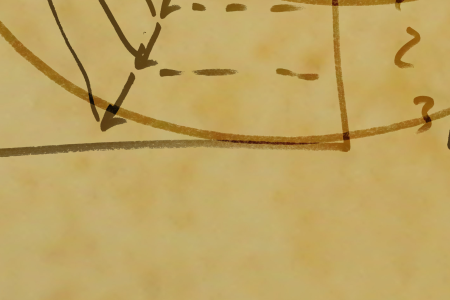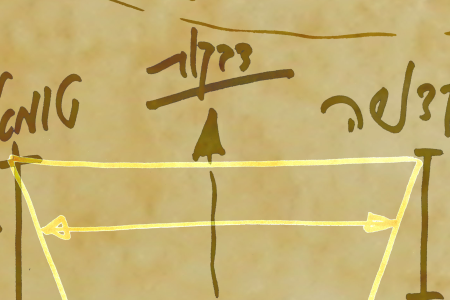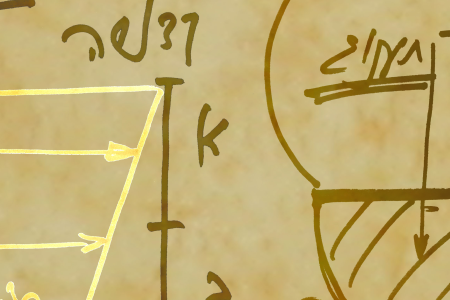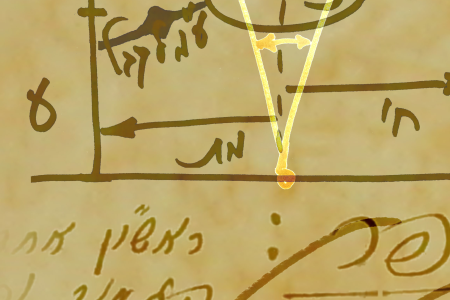
“And they said, ‘Come, let us build us a city, and a tower, with its top in heaven, and let us make us a name; lest we be scattered abroad upon the face of the whole earth.’”
The Historical Babylon
And there it is—the first and incredibly significant event that turned the whole world upside down—the beginning of the construction of the Tower of Babel. It is a story that took place some 4,000 years ago, yet remains startlingly topical to this day.
Any historic event you can think of is a consequence of what has already transpired in the spiritual realm.
There is a saying in Kabbalah that “there is not a blade of grass below that does not have an angel above that strikes it and tells it, ‘Grow!’” So is the case with the Tower of Babel. It actually existed, as the annals of history confirm.
At the turn of the 20th century, German archeologist Robert Koldewey discovered the ancient city of Babylon in today’s Iraq. It contained the ruins of a tower whose dimensions measured (in meters) 90x90x90. Herodotus, the ancient Greek historian who lived in the 5th century BC, described the tower as a seven-tier pyramid of analogous dimensions.
Babylon within Us
The above findings are actually hypotheses about the physical evidence of the existence of the Tower of Babel. We, however, are more interested in the roots of what really happened. We strive to understand the cause, correlate it with our inner world, and make sure that the division that took place then doesn’t repeat itself. By attaining the spiritual worlds we can influence the cause of everything that transpires, and thereby change our fate, the fate of the world, and the fate of humanity as a whole.
This is what the Midrash tells us on the subject: The Babylonians knew the story of the flood. They lived in fear that the same fate might befall them. Thus, they sought a place where they could dwell in complete safety. Ultimately, they found a valley in the land of Babylon that was big enough to hold them all.
Afterwards the people crowned Nimrod as their king. And since they all settled in Babylon, Nimrod essentially became king of the entire population on Earth.
Nimrod proposed to the people, “Let us build a big city where we can all live. And in that city let us erect a very high tower.” His subjects were delighted with the idea.
He said, “Let us build a tower so high that its top will reach the Heavens, and let us make us a name, lest another flood comes and scatters us throughout the world.”
The New, Stronger Ego Crowned as King
However, though all were united in the belief that the tower must be built, their opinions concerning the purpose of its construction differed.
Some people thought, “In the event of another flood, we shall climb to the top of the tower, where the water shall not reach us.”
Another group thought, “We shall make us a name,” aiming to build a place of assembly at the top of the tower and worship their gods there, thus being saved from any calamity.
Others still protested, “It is unjust that the Creator alone is lord over the realms above, limiting our domain to the world below.”
Do you see the ego talking?!
“We will reach the heavens on our own, without the Creator’s help. We will rule the world, and not Him. We will build us a tower so high that its top will reach the heavens, and we will make us a name.”
Where is this audacity coming from? The answer is that they had reached a new degree.
Precisely because they were able to complete the previous degree, they were given additional egoism to work with.
At this new degree the ego is king, and its name is “Nimrod,” from the word, Meridah—rebellion.
“And so, the people crowned Nimrod to be their king. And since they all settled in Babylon, Nimrod essentially became king of the entire population of Earth.”
“Nimrod” is a powerful new egoistic force that rules over the entire ego. And that force is what you must battle now.
Abraham, the Altruistic Force, Capable of Defeating Nimrod Appears
At first glance, the ego appears to have won.
The building of the tower was a mammoth undertaking. Because there was no stone in Babylon, the people created a new construction material: they burned clay in fire and used the resulting bricks in place of stone.
The bricks were fashioned as if by themselves: when the people laid one brick, they discovered two in the wall, and when they laid two, four bricks appeared in the wall.
What does this passage mean? It is the voice of the ego saying, “We don’t need the Upper Force, we’ll develop construction technology, we’ll believe only in our own hands, in our own intellect, and we will win.”
The tower grew and grew, and soon became so tall that it took a year to climb to its top.
The builders were so fanatical in their desire to complete the tower that whenever a brick fell and broke, they lamented: “How hard it will be to replace it.” “But when a person slipped and fell to his death, no one looked upon him.”
One day, a man named Abraham, son of Terah, was walking past the site of the tower’s construction. He was forty-eight years old at the time, and famous for opposing the erection of the tower. When he approached and was asked, “Join us in building the tower, for you are a powerful man and will be very useful,” he refused them, saying, “You have renounced the Creator, who is the Tower, and decided to replace Him with a tower of bricks.”
This is how the altruistic force that corresponds to this egoistic degree manifests in us. This force is the only one capable of defeating Nimrod, and its name is Abraham.
This force throws out a warning almost in passing. It is not yet capable of dealing with the enlarged egoism, but its voice can already be heard, and this is very important.
 “The Meaning of the Tower of Babel Bible Story” is based on the book, The Secrets of the Eternal Book: The Meaning of the Stories of the Pentateuch by Semion Vinokur.
“The Meaning of the Tower of Babel Bible Story” is based on the book, The Secrets of the Eternal Book: The Meaning of the Stories of the Pentateuch by Semion Vinokur.
 Purchase Paperback »
Purchase Paperback »
 Purchase ePub & Kindle »
Purchase ePub & Kindle »
 Download PDF Free »
Download PDF Free »






 “The Meaning of the Tower of Babel Bible Story” is based on the book, The Secrets of the Eternal Book: The Meaning of the Stories of the Pentateuch by Semion Vinokur.
“The Meaning of the Tower of Babel Bible Story” is based on the book, The Secrets of the Eternal Book: The Meaning of the Stories of the Pentateuch by Semion Vinokur.